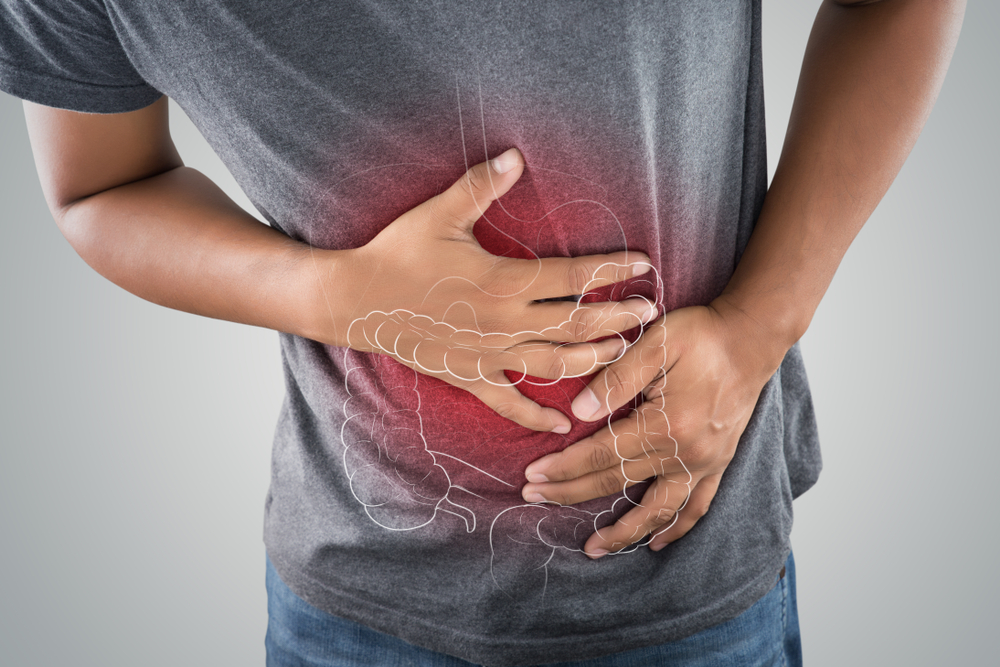What happens when small health changes start to become more serious? That’s exactly what happens for many people with ulcerative colitis (UC) – a condition that can start out minor and quickly grow worse. If you’re worried about health changes potentially being connected to UC, you can search online right now to learn about UC symptoms.
If you think you might have ulcerative colitis, or if you’re currently living with this difficult condition, you do have options to manage your health and treatments. While ulcerative colitis can’t be cured, knowing the facts and finding the right treatment option could put the disease into long-term remission. Fortunately, if you start a search online today, you can learn more about UC.
 Early Warning Signs of Ulcerative Colitis
Early Warning Signs of Ulcerative Colitis
Ulcerative colitis is an inflammatory bowel disease, which means it causes inflammation and ulcers within the digestive tract – and though it’s centered primarily in the large intestine and rectum, ulcerative colitis can affect other areas of the body.
Ulcerative colitis can appear with different symptoms in different people. And these symptoms can vary depending on the level on inflammation happening in your body, as well as where the symptoms are occurring.
Because of this, sometimes even small changes in your body might be a sign of ulcerative colitis. You’ll want to pay attention to the following symptoms, which the Mayo Clinic¹ notes can be early warning signs of this condition:
- Diarrhea
- Abdominal pain or cramping
- Rectal pain
- Rectal bleeding
- Requiring urgent trips to the restroom
- Inability to relieve yourself
- Unexplained weight loss
- Fever
The early signs and symptoms of ulcerative colitis can be mild, and because the condition can go into remission, it might seem like nothing is wrong. That’s why it’s important to note any changes or the appearance of these symptoms.
How Ulcerative Colitis Is Diagnosed
Once you’ve started noticing any symptoms that might be related to ulcerative colitis, you’ll want to make sure you visit your doctor. Although it can be tough to determine whether or not your symptoms are serious enough to need a doctor, it’s better to take action early than to wait and let the condition get worse.
When you visit your doctor, you’ll need to discuss your symptoms so your doctor can determine whether additional testing is needed. In order to diagnose ulcerative colitis, your doctor will evaluate your symptoms and try to determine where your symptoms stem from.
If your doctor determines that you do have ulcerative colitis, he or she will help you narrow down the condition by figuring out which type of ulcerative colitis you have. The types depend on where the condition is happening in the body, and the Mayo Clinic² lists them as:
- Ulcerative proctitis, which causes inflammation in the rectum and is usually identified by rectal bleeding.
- Proctosigmoiditis, which causes inflammation in the rectum and colon and includes symptoms like bloody diarrhea, abdominal pain, and difficulty going to the bathroom.
- Left-sided colitis, which causes inflammation throughout the rectum and entire colon, as well as symptoms like weight loss, abdominal cramps, and bloody stool.
- Pancolitis, which causes inflammation in the colon and is often identified by severe bloody diarrhea.
- Acute severe ulcerative colitis, which causes inflammation in the colon and comes with severe symptoms including pain, frequent diarrhea, bleeding, and loss of appetite.
Treatment Options for Ulcerative Colitis
Once you’ve been diagnosed with ulcerative colitis and your doctor has determined which specific form of the condition you’re living with, you’ll be ready to discuss potential treatment options.
Ulcerative colitis can’t be cured, but it can enter remission and symptoms can be lessened. This can help you live a more normal life and soothe some of the most painful or frustrating aspects of the disease.
The following are the most common treatment options doctors recommend for ulcerative colitis, according to the Crohn’s and Colitis Foundation³:
- Medication: Medications can be prescribed to treat the symptoms of ulcerative colitis and suppress the inflammation.
- Diet and Nutrition: Diet and nutrition can soothe some ulcerative colitis symptoms, and the right foods can restore lost nutrients due to the disease.
- Combination Therapy: Those with ulcerative colitis can have success when combining different treatment options, like using medication and surgery or adjusting your diet and working with other therapies.
- Surgery: When other treatment options aren’t effective, surgery can help those with ulcerative colitis. There are two surgery options – the removal of the colon and rectum, with a stoma or an ileostomy created, or the removal of the colon alone.
According to the Crohn’s and Colitis Foundation⁴, the goal when getting treatment for ulcerative colitis is to improve your immune system and keep it under control to reduce inflammation and manage your disease. With the knowledge of treatment options like these, you’ll be prepared to face your ulcerative colitis head on and seek solutions.


